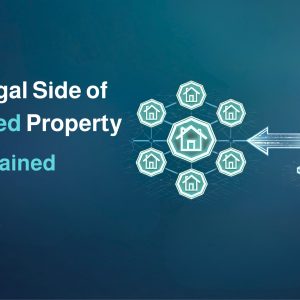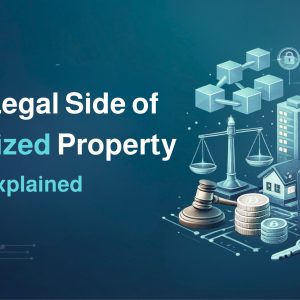You know you would like to grow your wealth in 2026, and would like to do that by investing in real estate, but you may not know how to find investment properties for sale. Real estate still remains one of the most reliable ways to build long-term wealth. Choosing the right property is more than just browsing online listings and choosing one that looks nice; it is about research, networking, and understanding market trends. Being a successful investor means using all these tools effectively.
Globally, investors are finding new opportunities in a myriad of markets, from the high-growth cities of Asia and Europe to the holiday destinations of the Americas. Residential properties, commercial spaces, and short-term rentals all offer unique opportunities for the right investor. It is up to you to discover which works best for your goals and how to jump on the right opportunities before the competition gets wind.
The Saudi Arabian property sector offers a piece of an evolving global real estate picture. This guide focuses on how to find investment for sale in a global context, highlighting the strategies that are effective in differing markets. We will take a closer look at the types of properties available, the best method of sourcing them, how to evaluate potential investments, and common mistakes to avoid. These, along with actionable tips you can use today.
More topics can be read on the Gamma blog
Understanding Different Types of Investment Properties
It is important to know what you are looking for before you begin the search. Understanding that each category comes with its own
benefits, risks, and ideal investment strategies is important in helping you decide where to focus your time and capital.
-
Residential Properties
This category includes houses, apartments, and townhouses. Residential real estate is often the first choice for new investors due to the constant demand for housing, which means that rental income is fairly stable and there is potential for long-term capital appreciation.
-
Commercial Properties
Office spaces, rental units, warehouses, and industrial facilities are covered in this category. Commercial leases usually run for several years, providing longer-term income stability. The downside is that vacancy periods are often a little longer, with higher upfront costs.
-
Vacation Rentals
Investors can generate high seasonal returns with short-term vacation rentals in tourist destinations. Platforms like Airbnb and Booking.com have made this option more accessible to small investors. The cons would be that income is based on fickle vacation trade, so returns can be unpredictable, and some locations have strict regulations.
Comparison table: Global property types.
| Property Type | Typical Investor Goals | Pros | Cons | Average rental yield potential (globally)* |
| Residential | Steady rental income, long-term capital growth | High demand, easier to finance, stable tenants. | Lower yields than some commercial assets, and tenant turnover | 3%-6% |
| Commercial | Higher rental returns, long leases | Longer lease terms, higher income potential | Larger upfront investments, longer vacancy risks | 5%-12% |
| Vacation Rental | High seasonal income, portfolio diversification | Strong returns in peak seasons, flexible personal use | Seasonal demand, higher management needs, regulation changes | 4%-10% |
* Yields vary widely by country and city
Where and How to Find Investment Properties for Sale
Once you have decided on the type of property you are interested in, our next step is to learn how to find investment properties for sale that meet your needs. There are many options and tools for investors in 2026, with the best results coming from a mixed approach, digital searches with real-world connections.
1- Online Property Platforms
Most people, when thinking about purchasing a property, will begin with a quick online search. It is the most efficient method to spot opportunities, whether you plan on investing locally or abroad. Global platforms like Zillow, Realtor.com, Rightmove, and Bayut offer detailed search filters for price, location, and property type. Many platforms will provide data on rental yields and price trends. You can set up alerts for properties that match your criteria.
2- Real Estate Agents and Brokers
Even though the internet has made it possible to browse thousands of properties as fast as you can scroll, agents are still an important part of the real estate sector, especially in a competitive market. They are the first to know about upcoming listings before they are publicly listed and can help negotiate better deals. When you are looking to invest in real estate abroad, a local agent can be an asset in navigating legal and cultural differences.
3- Property Auctions
Auctions can be a great place to find a deal, especially for investors with the capital to act quickly. It is important that you do your due diligence, as many auctioned properties are sold “as is” and may have outstanding debts or legal complications.
4- Networking and Local Knowledge
Some of the best listings don’t even make it to public listings. Attending networking events focused on real estate, joining clubs, and connecting with other investors can give you access to off-market opportunities.
5- International Property Investment
If you are looking to invest abroad, knowing how to find investment properties for sale in foreign markets means understanding local laws, taxes, and demand trends. To reduce risk, you can join with a reputable agency and use global property databases.
Evaluating Potential Investment Properties: Key Metrics
Understanding how to find investment properties is important, but it is only half the journey. The next step includes evaluating whether the property is worth buying according to your needs. Successful investors use a few key metrics to help make this decision.
- Location Analysis: Look for areas showing strong economic growth, reliable infrastructure, good amenities, and low crime rates. Cities showing planned transport links or new business hubs can boost future value.
- Market Trends: Check the price history, rental demand, and vacancy rates. Steady growth and low vacancies usually signal a healthy market.
- Rental Yield: Measures income compared to purchase price. The formula is (Annual rent/ purchase price) x 100. In established markets, 3% to 6% is common; emerging markets can be higher.
- ROI and Capital: ROI combines rental income with potential price gains. Capital growth measures how much the property’s value increases over time.
- Vacancy Rate: A lower vacancy rate means stronger demand. High rates may point to oversupply or low tenant interest.
Key Metrics for Evaluating Properties
| Metric | What it measures | Why it Matters | Target Range* |
| Rental Yield | Rent as % of property price | Quick income potential check | 3%- 6% mature, 6% + emerging |
| ROI | Income + appreciation returns | Overall profitability | 6% – 12% + |
| Capital Growth | Increase in property value | Long-term equity potential | 2% – 5% mature, 5% + emerging |
| Vacancy Rate | % of time unoccupied | Demand indicator | Below 5% |
*2026 global- ranges may vary by location.
Common Mistakes to Avoid When Searching for Properties
There are a few common mistakes to avoid, which sometimes even affect the most experienced among us. When figuring out how to find investment properties for sale, watching out for these pitfalls will ensure you save time, money, and stress.
- Relying on a single source. This refers to limiting yourself to one source of information, i.e., the website, the agent, or market, as this can cause you to miss opportunities. We suggest that you mix resources; combine online searches, auctions, networking, and local contracts to widen your reach.
- Skipping due diligence; It is vital that you always check legal ownership, zoning rules, and any outstanding debt before you commit to a property. This is especially true with investments occurring across borders, where regulations may vary.
- Ignoring hidden costs, the purchase price isn’t the only expense. Factor in maintenance, insurance, transfer fees, property taxes, and management fees. Understanding this will mean you don’t turn your profit into losses
- Overestimating returns: A classic case of don’t count your chickens before they have hatched. High rental yield projections don’t always match reality. Test assumptions by looking at historical occupancy rates, local demand, and realistic rental prices.
- Failing to diversify, putting all your capital into a single property investment or market, increases the risk. Combining different types of real estate or adding other asset-backed investments can help protect your portfolio. Platforms like Gamma assets make diversification a breeze.
Balancing Property Investments With Options Like Gamma Assets
Real estate has long been used to build wealth, but it is not completely immune to market shifts, interest rate changes, or unexpected costs. This is the reason that many investors diversify their portfolios, including other stable, asset-backed opportunities.
Platforms like Gamma Assets allow investors to diversify with stable, asset-backed opportunities alongside traditional property investments. By allocating part of your portfolio to such options, you can reduce your reliance on rental income solely and smooth out returns during market downturns. This balance means you are able to pursue high-potential properties and still maintain a level of security, leading to a more resilient investment strategy.
You can start investing now from the Gamma Asset Investment Platform
Finding the right investment property for sale involves research, strategy, and good timing. With an understanding of the main property types, knowing how to find investment properties for sale across multiple channels, and using key metrics to evaluate opportunities, allows you to make informed decisions that align with your goals.
Avoiding common mistakes will save you both time and money in the long run. This could involve skipping due diligence or relying solely on a single source. Property remains a strong wealth-building option; when paired with other stable, asset-backed investments, it can add further strength and resilience to your portfolio. We hope you are a little close to understanding how to find investment properties for sale.
Regardless of which type of property asset you are looking into, commercial, residential, or vacation, the right approach can turn a property search into a profitable, long-term investment. Happy hunting.
FAQs Regarding How to Find Investment Properties for Sale
Is it better to buy residential or commercial investment properties?
It depends on your goals. Residential properties often have more consistent demand and are easier to finance, making them ideal for beginners. Commercial properties can offer higher rental yields and longer leases, but usually require more capital and carry higher vacancy risks.
How do I know if a property will give good rental returns?
You could look at the rental yield, local occupancy rates, and demand drivers such as job growth, tourism, or infrastructure projects. Compare projected returns with similar properties in the area to ensure your estimates are realistic.
Can I invest in property without working with an agent?
Yes, but it requires more research and due diligence. Online platforms, auctions, and direct seller negotiations are options. However, agents can provide local market insight, access to off-market deals, and guidance through legal processes, which can be especially helpful when investing abroad.













